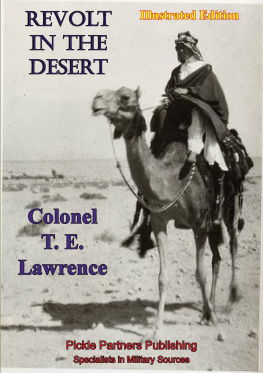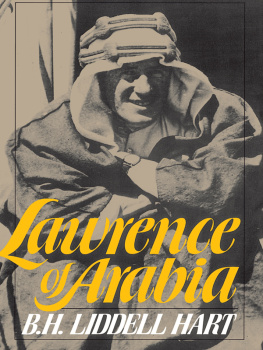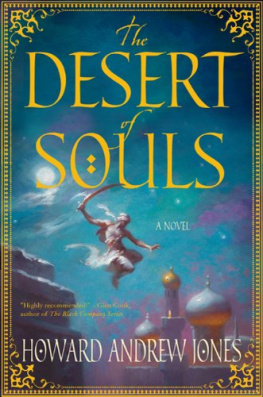A MARINER BOOK
Houghton Mifflin Company
Boston New York
FIRST MARINER BOOKS EDITION 1999
Copyright 1998 by Nicholas Clapp
Illustrations copyright 1998 by Kristen Mellon
All rights reserved
For information about permission to reproduce selections from
this book, write to Permissions, Houghton Mifflin Company,
215 Park Avenue South, New York, New York 10003.
LIBRARY OF CONGRESS
CATALOGING-IN-PUBLICATION DATA
Clapp, Nicholas.
The road to Ubar: finding the Atlantis of the sands / Nicholas Clapp.
p. cm.
Includes bibliographical references (p. ) and index.
ISBN 0-395-87596-x
ISBN 0-395-95786-9 (pbk)
1. Ubar (Extinct city). 2. Excavations (Archaeology)
OmanUbar (Extinct city). 1. Title.
DS 247.063 C 55 1998
939'.49 DC 21 97-36640 CIP
Book design and dune drawings by Anne Chalmers
Type is Electra by Linotype-Hell
Printed in the United States of America
QUM 10 9 8 7 6 5 4 3 2 1
For Kay, Cristina, Jenny, and Wil
Contents
Prologue
PART I: MYTH
1 Unicorns
2 The Sands of Their Desire
3 Arabia Felix
4 The Flight of the Challenger
5 The Search Continues
6 The Inscription of the Crows
7 The Rawi's Tale
8 Should You Eat Something That Talks to You?
9 The City of Brass
10 The Singing Sands
PART II: EXPEDITION
11 Reconnaissance
12 The Edge of the Known World
13 The Vale of Remembrance
14 The Empty Quarter
15 What the Radar Revealed
16 City of Towers
17 Red Springs
18 Seasons in the Land of Frankincense
PART III: THE RISE AND FALL OF UBAR
19 Older Than 'Ad
20 The Incense Trade
21 Khuljan's City
22 City of Good and Evil
23 Sons and Thrones Are Destroyed
Epilogue: Hud's Tomb
Appendix 1: Key Dates in the History of Ubar
Appendix 2: A Glossary of People and Places
Appendix 3: Further Reflections on al-Kisai's "The Prophet Hud"
Notes
Bibliography
Acknowledgments
Index
Prologue
Boston, Massachusetts, February 1797... I T WAS SNOWING and well after dark when the wagon finally pulled up outside the bookshop on the corner of Proctor's Lane. Wil, the young proprietor, would have been waiting anxiously, stamping his feet to keep warm and every few minutes wiping the snowflakes from his spectacles. He helped unload the shipment of the books he'd had printed in New Hampshire and, back inside, hastened to inspect a copy. The sturdy little volume began with his friend Cooper's account of his trip to the continent and his discovery in a country inn of a French edition of the Arabian Nights Entertainments. Cooper wrote, "When I had finished reading the book, it struck my imagination, that those tales might be compared to a once rich and luxuriant garden, neglected and run to waste, where scarce any thing strikes the common observer but the weeds and briars, whilst the more penetrating eye of the experienced gardener discovers still remaining some of the most fragrant and delightful flowers."
Wil paced back and forth in his tiny shop, leafing through the translationthe first in Americaof the tales. It was a daring, even reckless thing that he had chosen to do. It was not so long ago that the Reverend Jonathan Edwards had deemed that the only fit reading was the Bible or commentaries on it. Works of the imagination were the work of sinners, to be punished by an angry God. "That God holds you over the pit of hell," Edwards fulminated, "much as one holds a spider, abhors you, and is dreadfully provoked."
Wil, though, thought he had sensed a recent change in public sentiment. People were tired of the dark cloud of Puritanism. The time was ripe, he thought, for the "most fragrant and delightful flowers" of the Arabian Nights Entertainments, which he had slyly retitled The Oriental Moralist, hoping that nobody would notice the rather striking absence of morality in these tales of evil magicians, flying horses, secret lovers, and haunted, lost cities.
Wil's Oriental Moralist included "The Petrified City," a tale told by Zobeide, an enterprising woman of Baghdad. Accompanied by two tiresome sisters, she sets out on a journey:
We set sail with a fair wind, and soon got through the Persian gulph, and saw land on the twentieth day. It was a very high mountain, at the bottom of which we saw a great town....
I had not the patience to stay till my sisters were dressed to go along with me, but went ashore in the boat by myself, and made directly to the gate of the town. I saw there a great number of men upon guard, some sitting and others standing with sticks in their hands; and they had all such dreadful countenances that they frightened me; but perceiving they had not motion, nay not so much as with their eyes, I took courage and went nearer, and then found they were all turned into stones, all petrified.
Zobeide, though frightened, is determined to find out what happened. Exploring the town's fantastical palace, she discovers it full of "infinite riches, diamonds as big as ostrich eggs." And she discovers a sole survivor, a man chanting the Koran, who relates: "It was about three years ago, that a thundering voice was suddenly and so distinctively heard throughout the whole city, that nobody could avoid hearing it. The words were these: 'Inhabitants, abandon your idolatry, and worship the only God that shews mercy.'"
It seems that the message was repeated for three years, until the "only God that shews mercy" apparently ran short of it, and at four o'clock in the morning petrified the entire population, with the exception of the fellow chanting the Koran, who joins Zobeide and her sisters as they leave the city. The tale now takes some curious turns. At sea, Zobeide's envious sisters push her and her new friend overboard. He drowns, she survives. For their treachery, the two sisters are turned into black dogs by a passing dragon. Back in Baghdad, Zobeide divides her time between enjoying her great riches (for she had gathered up a few souvenirs) and disciplining her two new black dogs. She allows that "since that time I have whipped them every night, though with regret."
The world of "The Petrified City" was a world unknown to puritanical and bleak New England. Prior to Wil's publication of The Oriental Moralist, American school geographies had had little to say of Arabia, other than that "the Arabs are an ignorant, savage and barbarous people. Those on the coast are pirates; those in the interior are robbers." Yet in "The Petrified City," Zobeide is portrayed as smart, sensual, brave, and remarkably independent. And through her eyes we enter a world of exotic sights and sounds, of Oriental wisdom, of strange and mysterious happenings.
Zobeide's tale also happens to be the very first account printed in America of a city that time and again magically appears and disappears in the course of the thousand and one nights of the Arabian Nights Entertainments. The city is usually located in Arabia. Sometimes it is at the edge of the sea, but more often the traveler has to cross a forbidding mountain range and venture into a vast, sun-scorched land. Sometimes the city has no name, but often it is called Iram. And, as we shall see, Iram is one and the same as a fabled land and city known as Ubar.
Ubar, rich beyond all measure. Ubar, for its sins, suddenly and dramatically destroyed by Allah.
Back in the winter of 1797, aspiring publisher Wil Clap could take pride in "The Petrified City" as one of the "most fragrant and delightful flowers" offered to his fellow New Englanders. Sadly, his offering was unrequited: The Oriental Moralist had only a single small printing. Though Wil survived by printing tracts and memoirs penned by his Puritan ancestors, he was eventually forced to close up shop and head west, then south, in search of business. On his way to New Orleans he died in his forty-eighth year, of unrecorded cause.
Next page






